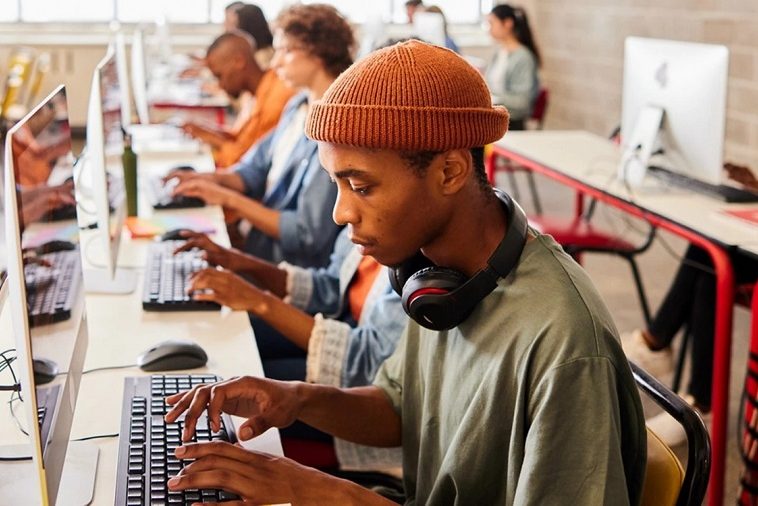The International Day for the Eradication of Poverty, observed annually on 17 October, serves as a critical reminder of the ongoing battle against poverty in all its forms. This year’s theme, “Ending Social and Institutional Maltreatment: Acting Together for Just, Peaceful, and Inclusive Societies,” highlights the need for global collective action, especially in Africa, where poverty remains a pressing issue as the world works to achieve the Sustainable Development Goals (SDGs) by 2030.
A Brief History of the Day
This day was established in 1987, following a significant gathering in Paris where over 100,000 people declared poverty a violation of human rights. The event underscored the need for global solidarity and collective action to ensure these rights are respected. Since then, 17 October has become a day of reflection and action, commemorated by individuals and organisations worldwide. A commemorative stone unveiled at the original event remains a powerful symbol of the fight against poverty, with replicas serving as landmarks during global observances, including at the United Nations Headquarters.
The ambition to eradicate poverty by 2030 is central to the SDGs, particularly Goal 1, which seeks to “end poverty in all its forms everywhere.” This reflects the understanding that poverty is not just a lack of income but a deprivation of basic resources, education, healthcare, and social opportunities.
In Africa, where over 420 million people live in extreme poverty, the situation is particularly dire. The COVID-19 pandemic further exacerbated this, pushing an additional 40 million people into extreme poverty in the region, reversing years of progress.
Strategies for Combating Poverty in Africa
- Targeting Vulnerable Populations: Special attention must be given to the most marginalised groups, including women, children, the elderly, and those affected by conflict and climate change. UN Secretary-General António Guterres noted, “The pandemic has shown us that we are only as strong as the most vulnerable among us.” This highlights the critical need for policies that promote equality and amplify marginalised voices.
- Increasing Access to Basic Resources and Services: Access to essential services like education, healthcare, clean water, and sanitation is vital in the fight against poverty. A 2021 World Bank report emphasised that access to quality education could lift 100 million people out of extreme poverty. However, in many African countries, girls are often the first to be withdrawn from school, reinforcing cycles of poverty.
- Supporting Conflict- and Climate-Affected Communities: Climate change and armed conflicts disproportionately impact the poorest communities, exacerbating their vulnerabilities. The UNHCR reported that there were 26 million refugees in Africa in 2021, often living in precarious conditions. These groups must be prioritised in poverty eradication efforts to ensure their voices are heard and their needs addressed.
The theme “Ending Social and Institutional Maltreatment” underscores the importance of dismantling systems that perpetuate poverty and inequality. Social and institutional maltreatment can take the form of discrimination, lack of access to justice, and inadequate representation in decision-making processes.
Building inclusive societies where everyone has a voice is essential. As Mother Teresa said, “There is no greater violence than the lack of basic needs,” a statement that resonates deeply in Africa, where millions still lack access to the most basic resources, particularly in rural and underserved areas.
Current Data and Statistics
- As of 2020, 27.4% of Africa’s population was living below the poverty line, a stark reminder of the continent’s challenges.
- The UNDP’s Global Multidimensional Poverty Index (MPI) revealed that over 600 million children in Africa suffer from multidimensional poverty, experiencing deprivations in health, education, and living standards simultaneously.
- A World Bank report emphasised that investments in education and healthcare could significantly uplift communities. For example, providing all African children with basic reading skills could lift 48 million people out of extreme poverty.
A Call to Action
As we observe the International Day for the Eradication of Poverty, it is essential to recognise the collective responsibility to combat poverty, particularly in Africa. Governments, civil society, the private sector, and individuals must collaborate to develop and implement effective strategies prioritising the needs of those living in poverty.
READ ALSO: World Food Day 2024: Food Security for Africa’s Future
What Can You Do?
Here are some actions individuals and communities can take:
- Advocate for social justice policies that ensure equitable resource distribution, especially for women and children.
- Support local organisations actively working to alleviate poverty in your community.
- Educate yourself and others about the complexities of poverty and the structural factors that sustain it.
- Volunteer your time or skills to organisations focused on poverty eradication.
In Conclusion?
The goal of eradicating poverty by 2030 is within reach, but it requires sustained commitment and action from all sectors of society. Let us work together to build just, peaceful, and inclusive societies across Africa and beyond, where everyone has the opportunity to thrive free from the constraints of poverty. Together, we can create a world where dignity, opportunity, and hope are accessible to all.




